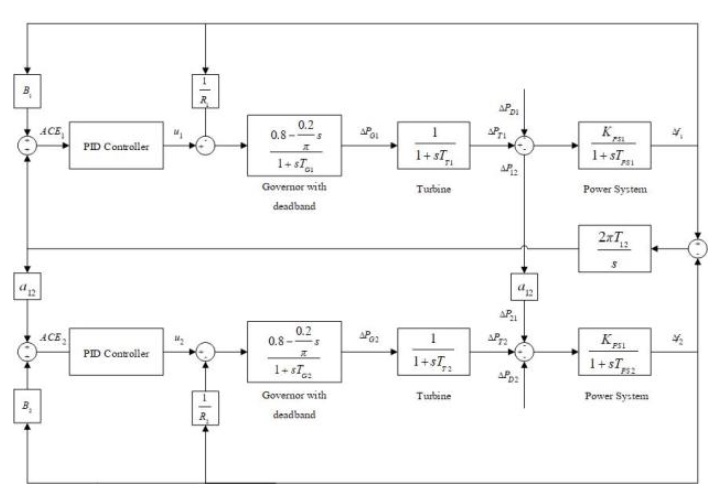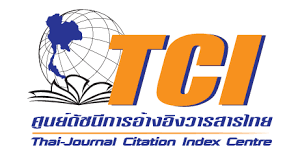The Development of PID Controller by Chess Algorithm
doi: 10.14456/mijet.2024.6
Keywords:
Automatic Generation Control, PID Control, Optimization Technique, Particle Swarm Optimization, Chess AlgorithmAbstract
The paper discusses the design and analysis of the control of two interconnected thermal power generation systems using the proportional-integral-derivative (PID) control method, which is further enhanced by the Chess algorithm (CA). Typically, power and control systems exhibit non-linear behavior. Therefore, it is necessary to optimize the automatic gain controllers (AGCs), especially the PID controllers that rely on numerous factors. The Chess algorithms and Particle Swarm Optimization (PSO) have been introduced to enhance the parameterization and evaluate the effectiveness of this method in the context of a dynamic electric load size change approach. Through experimentation, employing the Chess algorithm to enhance the generating system's parameters will render the system more resilient to variations and yield superior performance.
References
Hossain, E., et al., Analysis and mitigation of power quality issues in distributed generation systems using custom power devices. Ieee Access, 2018. 6: p. 16816-16833.
Chen, C., et al., Tie-line bias control applicability to load frequency control for multi-area interconnected power systems of complex topology. energies, 2017. 10(1): p. 78.
Clark, D.D., K.T. Pogran, and D.P. Reed, An introduction to local area networks. Proceedings of the IEEE, 1978. 66(11): p. 1497-1517.
Bao, Y.-Q., et al., Demand response for frequency control of multi-area power system. Journal of Modern Power Systems and Clean Energy, 2017. 5(1): p. 20-29.
Terano, T., K. Asai, and M. Sugeno, Fuzzy systems theory and its applications. 1992: Academic Press Professional, Inc.
Mokhtar, M., et al., An Adaptive Load Frequency Control for Power Systems with Renewable Energy Sources. Energies 2022, 15, 573. 2022, s Note: MDPI stays neutral with regard to jurisdictional claims in published ….
Atmaca, H., B. Cetisli, and H.S. Yavuz. The comparison of fuzzy inference systems and neural network approaches with ANFIS method for fuel consumption data. in Second international conference on electrical and electronics engineering papers ELECO. 2001.
Khuntia, S.R. and S. Panda, Simulation study for automatic generation control of a multi-area power system by ANFIS approach. Applied soft computing, 2012. 12(1): p. 333-341.
Bassi, S., M. Mishra, and E. Omizegba, Automatic tuning of proportional-integral-derivative (PID) controller using particle swarm optimization (PSO) algorithm. International Journal of Artificial Intelligence & Applications, 2011. 2(4): p. 25.
Eberhart, R. and J. Kennedy. Particle swarm optimization. in Proceedings of the IEEE international conference on neural networks. 1995. Citeseer.
Lee, K.Y. and M.A. El-Sharkawi, Modern heuristic optimization techniques: theory and applications to power systems. Vol. 39. 2008: John Wiley & Sons.
Pothiya, K. and W. Sa-ngiamvibool, Chess Algorithm Optimization Technique. 2019, Mahasarakham University.
Thaokaew, E. and W. Sa-Ngiamvibool, Design of Parallel 2-DOF PID Controller by Bee Algorithm for Interconnected Thermal Power System. 2020, Mahasarakham University.
Chaisawasd, A. and W. Sa-Ngiamvibool, Design of PID Controller by Salp Swarm Optimization for Interconnected Thermal Power System. 2023, Mahasarakham University.
Bennett, S., Development of the PID controller. IEEE Control Systems Magazine, 1993. 13(6): p. 58-62.

Downloads
Published
How to Cite
Issue
Section
License

This work is licensed under a Creative Commons Attribution-NonCommercial-NoDerivatives 4.0 International License.








